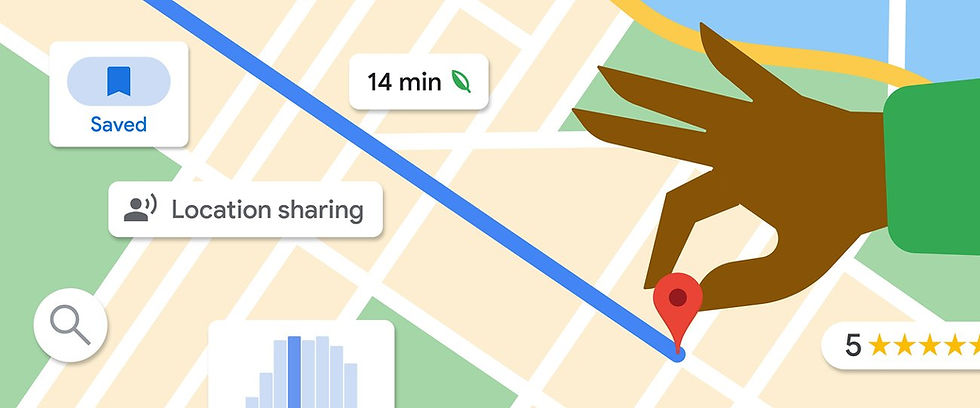Is Your Phone Spying on You? The Shocking Truth (2025)
- Abhinand PS
.jpg/v1/fill/w_320,h_320/file.jpg)
- Jul 28
- 3 min read
🔍 Quick Summary: Smartphone Surveillance in 2025

Surveillance Type | How It Happens | Risk Level | What You Can Do |
Microphone access | Apps listen via background permissions | High | Revoke unused mic access |
Location tracking | Continuous GPS & WiFi triangulation | High | Disable location when idle |
App usage monitoring | Installed SDKs track behavior | Medium | Use privacy-friendly apps |
Keyboard input logging | Some keyboards collect what you type | Medium | Use open-source keyboards |
Ad targeting via sensors | Phone motion + ambient data tracking | Low–Medium | Limit sensor access manually |
👋 Introduction: Why I Started Digging Into This
It all started with a weird coincidence.
I was talking to a friend about taking a trip to Bali. Minutes later, I opened Instagram—and there it was: ads for Bali resorts. I hadn’t Googled it. I hadn’t typed anything. Just a casual conversation.
Was my phone listening to me?That question led me down a rabbit hole of privacy settings, hidden permissions, and some very creepy discoveries.
This post shares what I found, what’s actually true, and how you can take back control of your data in 2025.
🧠 Myth vs. Reality: Is Your Phone Really Spying on You?
Let’s clear something up.
Your smartphone doesn’t need to record full conversations to know everything about you. It just needs tiny signals—your location, what you tap, how fast you type, what your camera sees in the background.
What I Found:
Over 50% of apps on my phone had background mic or camera access
Google Assistant and Siri were always listening for wake words
Several apps used sensor data (gyroscope, accelerometer) to detect movement patterns
📌 Related post on abhinandps.com: 2025 Smartphone Privacy Checklist
🎯 1. Microphone Access: The Silent Listener
Apps like Instagram, Facebook, TikTok, and even some flashlight apps request microphone permissions—often for “voice features” you never use.
Real-World Test I Did:
I talked about random, obscure products (like “purple hiking boots”) near my phone while it was locked. Within a few days, related ads appeared in my feeds.
How to Stop It:
Go to Settings → App Permissions → Microphone
Disable mic access for non-voice apps
Use airplane mode during sensitive conversations
🔗 External source: Consumer Reports - Phone Mic Privacy
📍 2. Location Tracking: You’re Always Being Watched
Even when you turn off GPS, your phone can track you using:
Nearby WiFi signals
Bluetooth beacons
Motion sensors
Surprising discovery: Some weather apps were pinging my location 300+ times/day.
What to Do:
Set location permissions to “While using the app”
Disable WiFi and Bluetooth scanning in the background
Turn off location history in Google Maps
🕵️ 3. Keyboard Logging & App Behavior Tracking
Many free keyboards like Microsoft SwiftKey or Grammarly Keyboard transmit anonymized data about:
What you type
How fast you type
Which emojis you use most
Risk: Even “anonymous” data can be re-identified over time.
My Fix:
I switched to OpenBoard, an open-source, privacy-focused keyboard. Smooth, minimal, and no data harvesting.
📌 Semantic SEO terms: best private keyboard 2025, phone keylogger protection
📊 4. Sensor & Ambient Data Collection: The New Frontier
Sensors like your gyroscope, magnetometer, and even ambient light sensor can be accessed by apps without you knowing. Some ad SDKs use these to:
Predict when you pick up your phone
Guess your mood (based on movement + time of day)
Trigger personalized ads during high-attention windows
What You Can Do:
Go to Developer Options → App sensor access → Restrict
Install Sensor Access apps to monitor live usage
🛡️ How to Take Back Control (2025 Privacy Guide)
✅ Step-by-Step:
Audit app permissions monthly
Uninstall apps you don’t use (yes, even that calorie tracker)
Use privacy-based browsers (like Brave or Firefox Focus)
Switch to non-tracking search engines (like DuckDuckGo)
Limit smart assistants to manual activation
📚 FAQ: Smartphone Spying in 2025
1. Can phones listen without your permission?
Technically no—but permissions are often buried during installation. Many apps exploit background mic access under vague "enhanced experience" terms.
2. How do I know if my phone camera or mic is on?
Modern phones show status indicators (green/orange dots), but some older or modified apps bypass this. Use tools like Access Dots or privacy dashboards.
3. Which phones are most privacy-focused in 2025?
Top choices:
Google Pixel (with GrapheneOS)
Apple iPhone (with strict app policies)
Fairphone with /e/OS (open-source Android alternative)
🔚 Final Thoughts: Your Phone Isn’t Evil—But It’s Not Innocent Either
Smartphones are incredible tools—but they’re also 24/7 data collectors. That doesn’t mean you need to ditch them. It just means you need to be smarter than your phone.
If you’re not paying for the product, you are the product.
Protect your privacy. Audit your permissions. And don’t blindly trust the defaults.
🧰 Want My 2025 Privacy Toolkit?Get my Free Smartphone Privacy Checklist on abhinandps.com/privacy-checklist
Also read: How I Quit Social Media for 30 Days—What Really Happened



Comments